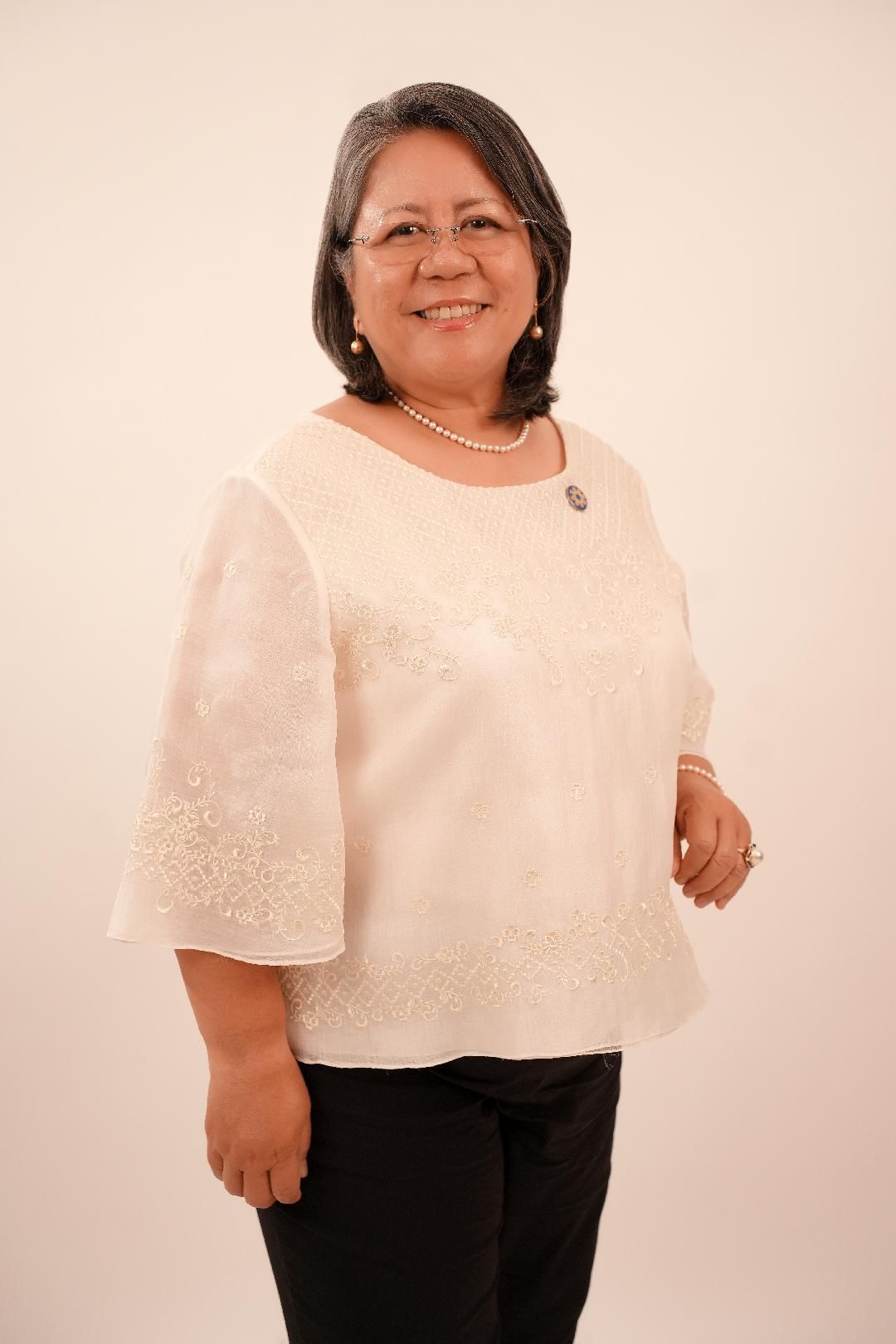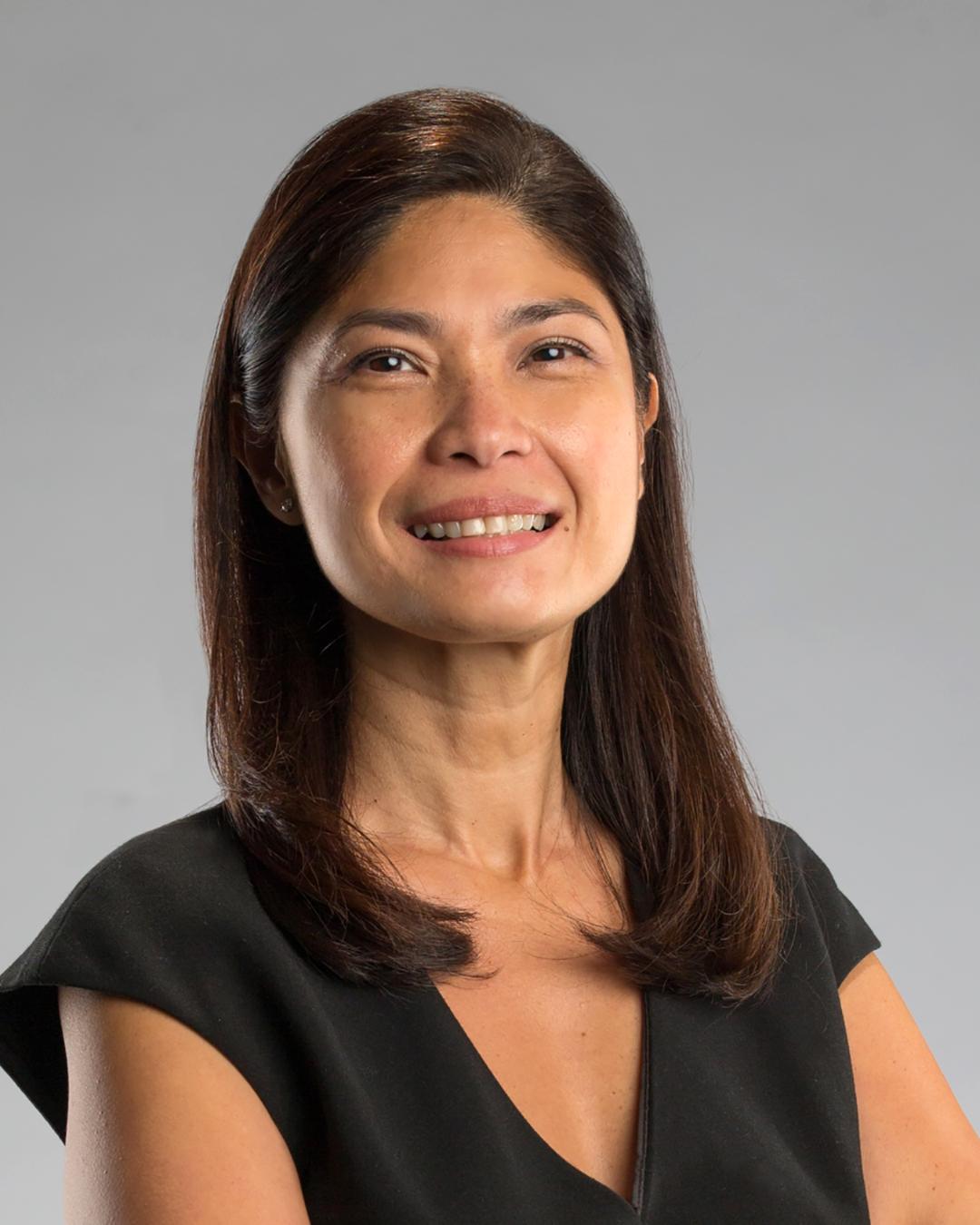Her word is 'power'! Change the way you look at her success and mission

The energy transition isn’t just about swapping fossil fuels for clean technologies - it’s a power shift redefining who commands influence in boardrooms and policymaking arenas, and women energy leaders are seizing the moment to reshape the future.
As Women’s Month comes to a close, let’s spotlight three formidable women energy leaders who are not just amplifying their voices within their organizations but are fearlessly sculpting the blueprint for a more sustainable energy future that will echo across generations - Energy Undersecretary Rowena Cristina L. Guevara who takes reign on policy enforcements; Citicore Chief Investor Relations Officer Abigail Joan R. Cosico who’s wielding both strategy and substance to woo investors; and ACEN Senior Vice President Irene S. Maranan who isn’t just talking about net zero, she’s transforming ambition into concrete actions with real-world impact.
Their brand of leadership isn’t just about securing space at the decision-making table – they are a core component of the driving forces on policymaking as well as redesigning investment strategies so that the country’s push for energy security won’t just be a patchwork of short-term fixes but a long-term shield against planetary collapse. Well, swing your lens because their success isn’t just a goalpost – it’s a movement!
Undersecretary Guevara: Taking control of the room and the grid!

An Electrical Engineer by profession, Energy Undersecretary Rowena Cristina Guevara or Usec Gev to people in the energy sector – had gone from shaping young minds as former Dean at the UP College of Engineering to steering national policies—first at the Department of Science and Technology (DOST) and now at the Department of Energy (DOE).
In the academe, she didn’t just teach - she helped mold the next generation of innovators and builders - arming her students with the skills to drive nation-building and the grit to lead in organizations they would belong to.
“I am fortunate that I have the chance to have a stint with the university because I got to see what the future looks like – for the students in my class, I knew that in the future, they would also be in the sector I would probably be in; and every now and then, I would encounter a former student in the sector and I see how well they are doing. And my former students, they never disappoint me,” she stressed.
She confessed, though, that in her early years as an instructor, she had no academic mentor to emulate – what she had only known was the iron-fisted style of her terror professors. Hence, with no role model to follow, she naturally gravitated toward toughness. Still, she learned later on that sometimes, the first lesson in leadership is unlearning the past before redefining the future.
Usec Gev acknowledged that the 'formula of iron-clad discipline isn’t exactly a formula for success—as the ‘filter subject’ she was teaching then became more of a roadblock than a gateway for students to achieve success—with dismal passing rates dragging down the number of graduating engineers. It was a harsh reality check, she claimed, as breaking students didn’t build better engineers; it just thinned the ranks of future nation-builders.
Her turning point came when she pursued PhD in Electrical Engineering at the University of Michigan in the US, where she was exposed to a new, business-like teaching model. That offshore academic recharge didn’t just expand her perspective - it changed her entire approach. When her subject ceased to become a gatekeeper of fear, she became an ‘engineer’ of understanding, proving that equations weren’t meant to intimidate her students, but to empower them. The result? A seismic shift from dread to excellence, with her class passing rates surging to an impressive 90 percent-95 percent.
“I’ve learned that if you provide all the necessary learning tools that your students would need, not only will they pass the subject and graduate from the university, but they even got the chance to pursue sabbatical – so there’s really a way to do something better if you have a clear objective,” she enthused.
The lessons she honed in academia didn’t just stay in the classroom—they became the backbone of her government leadership. Balancing discipline with insight, she doesn’t just enforce rules; she deciphers the industry's pulse, ensuring that policies don’t just dictate but also facilitate investors’ entry.
She wittily remarked that at the DOE, she’s lucky to lead a team where women call the shots – such that decisions come with strategic alignment, not chaos, making task executions smoother and sharper. “Since we are mostly women when we decide, there’s always consensus - so it makes the job easier for all of us,” she noted.
Usec Gev also drew a hard-hitting parallel between energy leadership and motherhood, noting that both require a strategist’s mind and a guardian’s instinct. “Every decision has a cost impact, and as women, we master that early - because running a household budget isn’t so different from securing a nation’s energy future.”
As the momentum builder behind the country’s green energy auctions (GEAs), which underpin DOE’s push for large-scale renewable energy (RE) investments, Usec Gev likened her role to that of a mother—firm yet fair.
“We listen to investors,” she said, which is why the GEAs were announced eight months ahead of schedule and performance bonds were slashed from 20 percent to five percent. But make no mistake - this isn’t a free pass. Discipline remains non-negotiable. Players must meet more demanding requirements, including submitting system impact studies (SIS) before entering the GEA process – if only for bidders to firmly show that they’re not just talking investments out of thin air but fully committed to delivering the generated capacities.
“We also terminate contracts now,” she reminds investors, qualifying that “if a developer can’t follow its work plan, then we should give a chance to others who can develop the resource in a better manner and on time.”
At this point, if there’s frustration that gnaws at her, it’s watching the country’s brightest engineers and technical experts build the skylines and infrastructures of foreign nations - while back home, Filipino companies still struggle to offer salaries that could lure them back.
But Usec Gev remains optimistic. “I’m hoping we can bring some of them home. The opportunities are here, especially in the RE sector. That’s why I’m pushing industry players to match the salaries these workers earn abroad,” with her emphasizing that “if the energy sector pays competitively, we won’t just keep our engineers - we’ll build the future with them.”
Her conviction for renewables isn’t just rhetoric - it’s an investment war plan. She sees RE as the backbone of the country’s energy future, which is why she’s laser-focused on advancing the sector - be it with storage solutions, AI applications, or even with long-term bets on hydrogen and other developing technologies. “I believe in renewables, and I believe that we need to take care of the future generation – that’s why we need to start renewables now, it’s the only way that we can guarantee that they would still be able to live in this world,” she stressed.
On a broader scale, energy transition isn’t just about megawatts and investments—it’s about people. That’s why she’s also pushing hard for 100 percent electrification, fighting to bring power to the 1.3 million Filipinos left in the dark due to geographical chokepoints. Budget constraints or not, this is one battle she refuses to lose under the current administration. Because in her heart, energy isn’t just policy—it’s a lifeline.
ACEN’s Irene Maranan: Turning ambition into action for ‘net zero’ race

Irene’s daily grind isn’t just about relaying investment numbers and project milestones to the media - she’s also a formidable force behind ACEN Corp.’s shift to renewable investment play, ensuring that investors and stakeholders see not just ambition but actual project rollouts.
With ACEN’s rise as a global clean energy heavyweight, she’s helping steer a company that’s not just dominating the Philippine energy sector but making waves across the key markets of Australia, Vietnam, India, and Indonesia, among others.
At ACEN’s corporate helm, where women command 42 percent of leadership roles, Irene sees real progress - but the finish line for inclusivity is still far off. “There’s still work to be done… we still need to see greater representation at the very top – as CEOs, group heads, and board members – where key decisions that shape the industry are made,” she noted.
And in highly technical industries like energy, she opined that “while the traditional boy’s club may not be as visible as before, that doesn’t mean it has fully disappeared. In many ways, it has evolved – sometimes becoming more subtle, particularly in highly technical and network-driven spaces where access and influence still matter; that’s why it’s critical to not just open doors for women but to actively champion their growth – ensuring they have the mentorship, opportunities, and support to rise to the highest levels of leadership.”
Irene reckoned that “breaking the glass ceiling here wasn’t just about overcoming resistance – it’s about reshaping the conversation around sustainability, ensuring it is embedded in every decision, every project and every ambition,” qualifying that “today, the stakes are even higher as investor and stakeholder confidence depends on our ability to walk the talk, the real success won’t just be in achieving our targets, but in fostering a culture where sustainability is second nature, not an afterthought.”
Yet beyond boardroom metrics and investment wins, Irene is driving a far bigger, more audacious calling - helping turn ACEN’s net zero pledge into concrete action.
At the heart of their disruptive sustainability initiatives had been the company’s unflinching leap to retire its coal plant—South Luzon Thermal Energy Corp (SLTEC)—way ahead of its life cycle. By accelerating the decommissioning of a carbon-spewing thermal facility, ACEN is not just reshaping future energy investments—it is setting a global benchmark for how real climate leadership could flourish.
“One of the toughest challenges I’ve faced as Head of Sustainability was spearheading the development and rollout of ACEN’s Environmental and Social (E&S) policy and management system in 2019. This was a critical step in embedding global sustainability standards into our business – ensuring that environmental and social considerations were not just checkpoints but core pillars of how we select and develop projects,” she conveyed.
Irene similarly shared that “change – especially at the intersection of sustainability and business growth is never easy,” as she qualified that “initially, there was an organizational resistance, as some perceived the E&S policy as hurdle to execution speed.”
Building from that challenge, she knew the only way forward would be “strategic engagement, persistence and dialogue to shift the mindset from compliance to commitment – making it clear that sustainability isn’t just a responsibility, but a competitive advantage that strengthens our long-term success.”
Having gained a breakthrough in convincing the organization to embrace its sustainability journey and the broader net-zero goal, Irene made sure the momentum didn’t stop there. “We’ve since elevated our branding and communications to reinforce ACEN’s position as a leader in sustainable investing,” she said.
Irene further pointed out that while it’s trendy for companies to slap a ‘green’ label on themselves, “the real challenge is separating genuine sustainability from clever PR spin.” The key, she emphasized, lies in “transparency and accountability and not just promises” –and “there must be clear targets, reporting of progress and acknowledgment of challenges.”
This lady executive firmly stated that “ACEN’s net zero roadmap and commitment to early coal retirement aren’t just marketing points – they’re backed by real investments, global partnerships and measurable impact.”
Citicore’s Joan Cosico: Trailblazing innovative investment game plans

Joan spent 15 years carving her name in the real estate sector under Gokongwei-led Robinsons Land before taking her leap in 2016 to Megawide Construction Corp of business magnate Edgar Saavedra – and in both corporate roles, she’s holding her ground as one of the boys. But in industries where men still dominate the boardrooms and the build sites, the question lingers: Is inclusivity real, or is it just a catchphrase in a world where the old guard still reigns supreme?
In the companies she worked for, Joan said she’s fortunate to have bosses who just don’t give women a seat at the table but actively empower them. At Megawide, she asserted that her boss, Mr Saavedra, is very open-minded about women in leadership. “Environment plays a big role. He’s very close to his mother and that shaped his respect for women. He doesn’t see them as lower or inferior, in fact, he sees his mom as a force to reckon with. And that kind of mindset trickles down into the way he leads.”
With the trust and confidence she’s getting from her bosses, Joan is essentially fueled up to help rewire their investment strategies. While many Philippine businesses often choose to thrive on safe bets, Citicore somehow opted for the road less traveled - and she’s among the strategic anchors to their pioneering investment adventures - primarily launching the country’s first-ever renewable energy REIT (real estate investment trust), a daring business move that didn’t just carve a financial play milestone for the company, but it thrived as a solid statement and commitment to a clean energy future for the country.
“The most critical part I’ve done because there was no benefit of experience was the CREIT IPO – it was a game-changer because even within our own organization, we really had to explain it. We really had to go down to the details, it didn’t happen magically,” she narrated.
She elaborated, “CREIT wasn’t just about breaking new ground; it was about cementing Citicore’s place on the map. We created a product that allowed anyone —even those who had no clue how a solar plant operates—to take part in green investments.”
Looking back at their grueling process, she can only reminisce on it now as a culmination of “sweat, blood, and tears” – and the toughest part of it was when they had to push back the IPO to another date in February 2022. “How do you explain that to investors without shattering credibility?” she recalled. It was a precarious balancing act, but in the end, the payoff was worth every battle scar. “We pulled off the second-highest REIT offering subscription,” she narrated, showcasing that even the make-or-break setbacks can lead to market-defining victories.
After its REIT breakthrough, Citicore Renewable Energy Corp. also made another strategic step with its IPO last year. But as Joan quickly grasped, “just when we thought our second IPO would be smoother, it wasn’t… because past industry landmines were also haunting us.” Investor confidence had been rattled by stock offering concerns of other players, prompting Citicore to stand its ground firmly and demonstrate to investors that it wasn’t just another name in the RE sector – rather, it’s a company that can actually deliver value to its shareholders.
Beyond securing investor trust, Joan is also leading the company’s bid on strict ESG compliance, pulling in a global firm to lock in a rock-solid scoring system. “You don’t see the impact today,” she admitted, “but once we firmly establish our ESG score - both in theory and practice - our financing costs will go down, because a globally recognized ESG rating isn’t just a badge of honor; it’s a ticket to cheaper capital and long term credibility.”
To date, Citicore is solidly cementing it’s place in the clean energy investment race and well on its way to become a dominant player in the Philippine RE sector. With a bold five-year target of 5,000 megawatts of solar capacity, backed by other ventures in energy storage and wind power, the company isn’t just dreaming big – it’s breaking ground and turning blueprints into tangible generated capacities.
And as Citicore inches closer to its first 1,000MW milestone, Joan sees more than just numbers on a spreadsheet - she reflects deep on a battle hard-won. “I savor all the challenges because we were the underdog from day one,” she declared. “When we first announced our five-gigawatt ambition, people scoffed and asked: “What are you smoking to think you can build 1,000MW every year?” But now, with series of projects taking shape, those doubters may have already started eating their words.
In fact, she asserted that if she would have one shot for investment pitch to American billionaire Bill Gates, she wouldn’t waste a second, and this is what she will say: “The Philippines is stepping up for clean energy. As a company, we’re not just making promises - we’re breaking ground, building facilities, and running them. We’re natural builders. We roll up our sleeves and get things done.”
For Joan, this isn’t just a job - it’s a mission. And if there’s anything she would want imprinted in her cairn of memories – it would be these: “Two IPOs. Five gigawatts. The one who helped light up the world!”